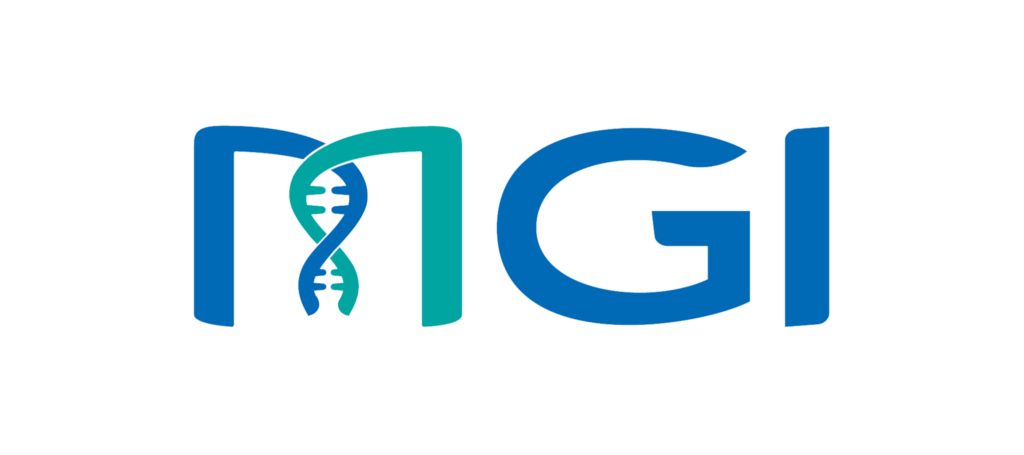Sponsored Content by MGIReviewed by Olivia FrostMay 4 2023
In this interview, Rizwana Mia, the Senior Program Manager at South African Medical Research Council, talks to News Medical about the African personalized medicine agenda.
Please introduce yourself and tell us about your role with the South African Medical Research Council?
My name is Rizwana Mia, and I am the senior program manager at the South African Medical Research Council. My role is primarily to manage the South African Precision Medicine program.
You are an advocate for the African Personalized Medicine agenda. What does the term ‘personalized medicine’ mean? How could this new approach potentially be transformative for healthcare within Africa?
As I understand it, personalized medicine focuses on giving the right person the right treatment at the right time. Personalized medicine is also the medical model that characterizes and considers a person’s phenotype and genotype when devising a treatment plan. This can include what the person looks like, their genetic makeup, making links between those factors, the condition’s that they are experiencing, and being able to treat them appropriately.

Image Credit: ShutterStock/PopTika
The more traditional practice of medicine did not take into account personalization. The end result, in all cases, was a symptom-based and highly generalized approach to treatment in which there was no consideration of dosage nor whether this would be the most effective for certain patients. This also differs when it comes to the African population.
It is important to understand that the majority of today’s drugs are not technically trialed on African people, which means that there may be some irrelevance or, worse, potentially vast adverse drug effects. This is one of the core reasons why we started a portfolio in pharmacogenomics in our country, studying severe adverse drug reactions based on the essential drug list utilized in our healthcare system.
What does the current landscape of genomic research look like in Africa? How does this landscape influence the success of personalized medicine strategies?
The European African Personalized Medicine Consortium is a project funded by the Horizon 2020 program and the European Union. Much time has been spent evaluating Africa’s research and innovation landscape and examining the continent’s scientific productivity.
Africa is less productive than the north and more established areas like the US and Europe. However, if we examine the collaborative interaction between Africa and Europe, the US, Australia and South America, it is shown that there is a great deal more collaboration between Africa and Europe.

Image Credit: ShutterStock/vitstudio
Since the first human genome was sequenced in the year 2000, there have been no mainstream studies of the African population. Instead, the non-African population groups were studied. If you think of a tree, the main trunk of the tree is one’s genetic makeup that lies in Africa: the home of all life and the cradle of humankind. The branches of this tree are the different population groups.
From 2000 until the present day, science has prioritized the study of the branches on one side of this tree. If we seek to position and understand the genomic diversity of Africa accurately, we will be able to unpack human heterogeneity. This will contribute to the global medical landscape, benefiting Africa and the entire globe.
African genomes are the most dynamically diverse out of all genomes, so overlooking African genomic diversity is a significant oversight.
Rizwana Mia at ICG17 - The African Personalized Medicine Agenda
This is partly attributable to cost: the initial sequencing of the human genome in the year 2000 represented a significant financial investment, which was not feasible for most African countries at the time.
Today, however, this technology has become more cost-effective, and simultaneously, infrastructure has been generated within African countries to allow such sequencing, offering many populations the capacity to unravel this diversity.
This technology has become essential in research, innovation, and healthcare. Now that such supporting pillars exist, education about this technology and encouraging its widespread adoption is vital.
Despite its potential within healthcare, there are still a number of obstacles remaining to the adoption of this technology, such as funding and education. What do you consider the biggest challenges surrounding the implementation of personalized medicine within Africa?
The largest obstacle, in my view, is a lack of understanding of the African genome. As I noted earlier, modern medicines are not made for African populations. If we can stimulate clinical studies on diverse populations and include these diverse population groups, we will be able to produce more relevant medication.

Image Credit: ShutterStock/Yurchanka Siarhei
If we can unravel the African genome, we can better understand drug targets and personalize them for our populations.
Such solutions can then be implemented. Currently, we cannot utilize even precise diagnostic arrays in the African population because there is a substantial genetic variation. This can be seen particularly when treating African cancers and people of African descent who have cancer: the targeted treatments are simply not relevant.
While working with the SAMRC, you also led a partnership focused on initiating large-scale whole genome sequencing for Southern Africa. Please outline more on this project and what was involved.
This was truly a tremendous feat and required real teamwork. The collaboration with MGI was the need to meet strategic endpoints. Persistence was vital and allowed us to get buy-in at a higher level, making people part of the process. This is an essential contributing factor to its success, which I am proud to take away from it.
Leadership needs to become part of the decision-making process, and at every step of the way, all the decision-makers in the ecosystem were included. For instance, we lead a due diligence team in China involving our Ministry of Science and our Ministry of Health. It was important to take key experts along to understand the scope of what we were trying to achieve.

Image Credit: ShutterStock/Marina Litvinova
Working with partners like the MGI has been amazing. We could see that they shared our vision for South Africa. We shared with them our vision of enabling localized genomic sequencing.
We were able to consult with their engineers. We helped to create the basic infrastructure in our country necessary to house these systems and implement an MGI workflow in our laboratory. Typically, when working with a company, we would have to pay for a tech transfer and other associated costs – which was not the case with MGI.
This is a testament to MGI’s altruistic vision: they shared our vision and helped us to achieve it. Today, we are partnered with MGI as our technology partners while maintaining that we are a public entity and, thus must comply with certain rules and regulations. There has always been a strong sense of respect on both sides, along with the flexibility required to make a great partnership.
It was also important for me to listen to the stakeholders and decision-makers, understand their points of contingency, and address those concerns upfront. As I said, that part of the decision-making process was key to the project’s success.
How do you interpret ‘Omics For All’?
During this process, we truly felt we understood their ethos of ‘Omics For All’ as they provided the support for us to implement this infrastructure. Indeed, when we put down this infrastructure, nothing else was comparable in the country at the time. Due to the well-stimulated ecosystem, other more prominent companies are also beginning to lay down this infrastructure.

Image Credit: ShutterStock/Spectral-Design
We can now state that we are in a position to start a large-scale genomic program in our country, where we were certainly not in that position before. The transparency and openness of MGI, and their commitment to understanding our rules and regulations, ensuring our compliance, and working with the utmost integrity in all of these aspects, was a key factor in the project’s success.
Can you share your thoughts on the collaboration between MGI and SAMRC and their success in utilizing MGI DNB sequencing platforms and technology to further genomics in South Africa and Africa?
Today, we have the core capabilities in place to enable molecular sequencing and the capacity to analyze the genomes that are being sequenced. Their support across every step has been vital in our work. Thanks to the fact that they put down a placement of instruments, our organization was not required to make a high-capital investment for the machines. Our strong shared relationship and the supply of our reagents enable our core research.
It is essential to note that we are not in the business of developing this technology. Instead, our focus is on trying to unravel our scientific questions; to unwrap the genomic diversity in our country. We aim to achieve momentum in genomic science and create capacity.
The infrastructure has provided us with a kind of boost in our ecosystem, which has been truly wonderful, and a strong learning curve for us. It has also been wonderful to observe the reduction in the cost of genomic sequencing, a hugely influential factor in everything. This will allow us to do even more in the future.

Image Credit: ShutterStock/Arthimedes
When it comes to understanding genetic diversity in African genomes, how might increased interest in personalized medicine assist with the boosting of efforts, nationally and internationally? What benefits could this bring to medical research?
When we think of African heterogeneity or genetic diversity, this benefit is best illustrated by a key example.
Somebody who is suffering from metastatic breast cancer, for instance, may not be able to receive the standard treatments currently available because the kind of genetic variation that causes this type of cancer in our population group means that the treatment may not technically work.
It is vital to understand what specific targets are needed for our population and what relevant treatments are required by our population groups. These are the questions we are looking to solve: we seek to create that baseline knowledge of personalized medicine solutions, accurate diagnosis, and relevant treatment approaches among the population.
In addition to the partnership, you also hold the position of South African Aid on the EU Africa Personalized Medicine Consortium, a Horizon 2020, which was founded to build personalized medicine links between Europe and Africa. What is the importance of this, and why is partnering with leading continents like Europe so vital and integral to boosting personalized medicine in Africa?
Our aim with the African Personalized Medicine Consortium is to bring the context to the forefront. Key questions we seek to answer include: what does this narrative look like in terms of Africa? How are these links built? What are the gaps? What are the needs? What are the areas of interest? How can a roadmap be created for developing strategies for personalized medicine approaches?
This type of work needs to be done across the continent. In February 2021, we began working on this project. The large-scale engagement and the analysis of scientific outputs in terms of productivity across Africa began. Examination of the links between the different continents and Africa took place. We are extremely grateful to the European Commission for funding the work.

Image Credit: ShutterStock/titoOnz
Europe is a very strong collaborating partner for Africa in research and innovation. In addition, we found that a great deal of capacity development needs to be done. Another critical question was: Who are the key stakeholders involved, and how do we approach them?
In this way, we created a stakeholder mapping initiative, resulting in a database of stakeholders across the government, continent, academics, industry, and policy landscape.
A strong correlation was found regarding policy. We found that some countries are moving on this trajectory very rapidly. At the same time, some countries still do not have the resources, access to healthcare, or proper healthcare policy or research and innovation in place.
The consortium tries to create a real story, narrative, and strategies. It is vital to develop a network across the continent to help each other. The problem needs to be solved, and the only way that can happen is if people know about it.
Can you tell us more about your presentation on the personalized medicine landscape in Africa and the key takeaways?
The key takeaways from my presentation on the scope of personalized medicine in Africa are the levels of research currently taking place. I think it is an excellent opportunity for people to understand the challenges and the opportunities they can derive from this point and how to act upon them to create collaborative research, where possible, in this area.
When encouraging new approaches to healthcare, how important is collaboration? How do conferences like ICG-17, and Riga help contribute to this collaboration?
ICG is a network of people who work in the genomic space. I believe that ICG is a fantastic engagement where thoughts can be shared, people can understand each other, where the scope of new technology emerging can be seen, and, crucially, how we can take those solutions forward.

Image Credit: ShutterStock/Natali_Mis
MGI has been strongly in support of your mission in terms of paving the way for African genomics. How important is the support of large international companies like MGI Tech?
It is being realized that industry support is hugely significant and integral to the success of innovation research, as well as stimulating innovation and research to boost the economy in the future.
A basic research pipeline is funded, and the hope is that one day this research will be applied as a solution to be sold in the ‘middle economy’ and contribute therein.
There is, therefore, a significant and close-knit relationship between industry and research. Furthermore, more prominent industry players can rely on their resources to do more, but it is important to see the stimulation of smaller industry players in the space.
With continued work, funding, and awareness surrounding the importance of personalized medicine, is it your hope that personalized medicine will become more commonplace in clinical settings? What would this mean for both healthcare infrastructures and patients?
I think this represents a very empowering approach, providing patients with an understanding of the process and ensuring that patients remain at the true center of healthcare. Furthermore, this will remove issues of regulation.
Not only is personalized medicine empowering, but it also offers a great deal of control to the individual. However, because the technologies are quite complex regarding their objectives and aims, there needs to be more advocacy in patient engagement - particularly from a scientific perspective, where informed consent is essential.

Image Credit: ShutterStock/Yurchanka Siarhei
Not everybody has access to good healthcare, but a personalized medicine approach offers individuals access to their health, increased understanding of their genomics and needs, and the tools to move towards more prevention care.
What is next for you in terms of your research and your career in personalized medicine?
I see myself as a strong advocate for African personalized medicine. In the future, I would like to have greater involvement in more projects going forward. I think that each of us, as a citizen, must play a vital role in advocating for African personalized medicine.
About MGI
MGI Tech Co., Ltd. (referred to as MGI) is committed to building core tools and technology to lead life science through intelligent innovation. MGI focuses on R&D, production, and sales of DNA sequencing instruments, reagents, and related products to support life science research, agriculture, precision medicine, and healthcare. MGI is a leading producer of clinical high-throughput gene sequencers, and its multi-omics platforms include genetic sequencing, mass spectrometry, medical imaging, and laboratory automation.
Founded in 2016, MGI has more than 1000 employees, nearly half of whom are R&D personnel. MGI operates in 39 countries and regions and has established multiple research and production bases around the world. Providing real-time, comprehensive, life-long solutions, its vision is to enable effective and affordable healthcare solutions for all.